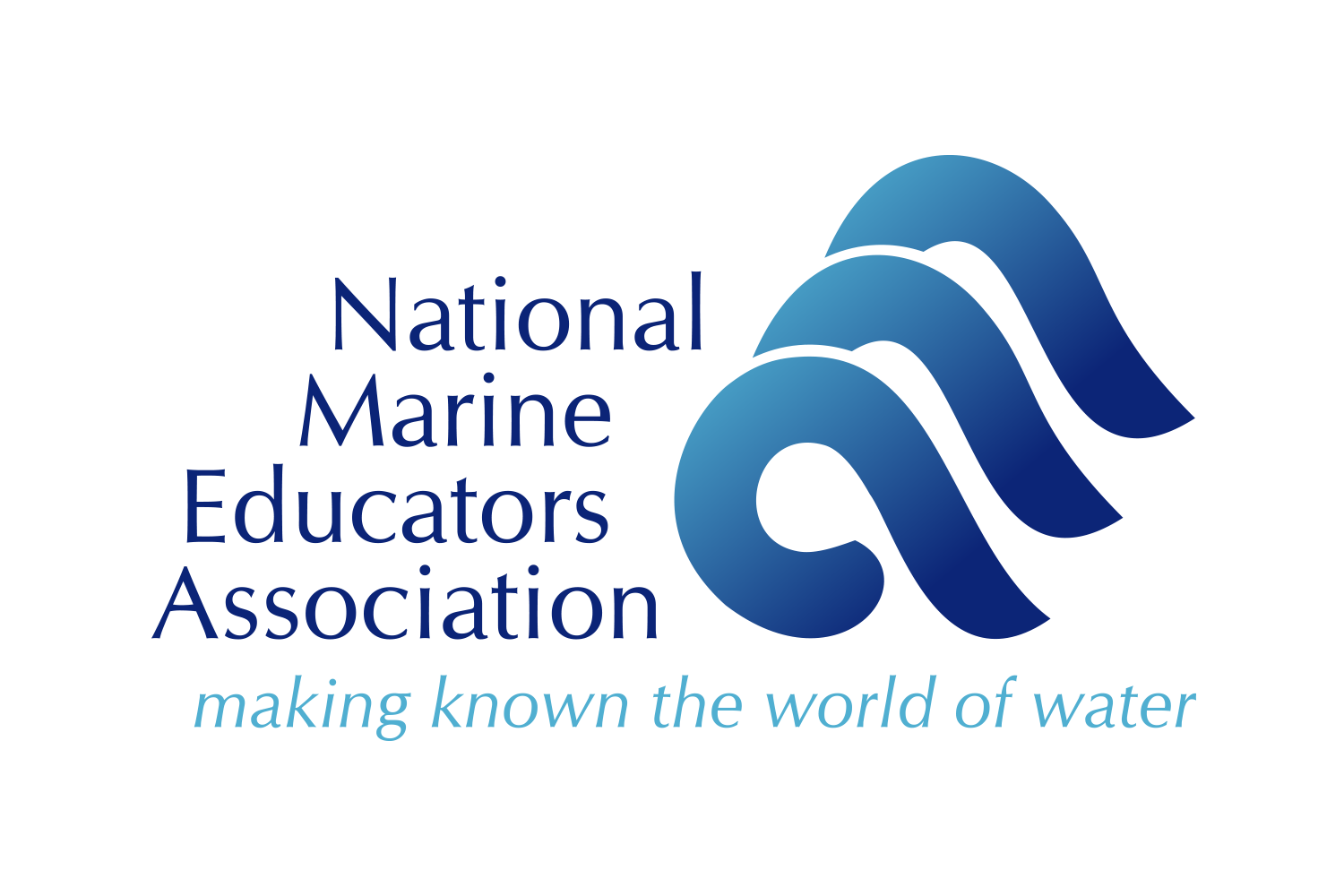Current: The Journal of Marine Education is the peer-reviewed journal of the National Marine Educators Association. It features lively, in-depth articles and activities relating to all aspects of the world of water. Articles explore the latest in marine and aquatic education research, ocean literacy, classroom and free-choice learning activities, marine science, art, maritime history and literature.
Volume 39 - Issue 1 - 2024
Current log:
I’m sure that many of you can agree that education can feel like an unrewarding profession, a week after week or year after year cycle that rarely shows it impact, but I hope that you manage to find the small and quaint victories in your work and I hope that those moments prove your efforts worthwhile.
In this issue of Current, you will read about recent new lesson plans that discuss plastic pollution and the ocean gyres. You will also read about new tools to aid in the development of effective lesson plans, as well as a novel artistic application for algae! We also cover a new educational book that discusses ospreys and their unique adaptations and behavior.
As marine science takes steps to become a more equitable field, we also write about a series of children’s book designed to increase representation of marginalized communities within the industry.
The Current editorial board welcomes your feedback on this journal and its content, and we’re always welcoming new reviewers to aid us in the editing process. To contact us, please send an email to current@marine-ed.org. To submit a paper for an upcoming issue, visit current-journal.com and click on the Start Submission button.
Calm tides,
Zach Greenberg
Editor
The Current editorial board welcomes your feedback on the journal and its content. To contact us, please send an email to current@marine-ed.org. To submit a paper for an upcoming issue, visit current-journal.com and click on the Start Submission button.
Interested in submitting an article to Current? Guidelines for submissions are available on our journal website.
Focus and Scope
Current: The Journal of Marine Education is the peer-reviewed journal of the National Marine Educators Association who seeks to “Make known the world of water.” It features lively, in-depth articles and activities relating to all aspects of educating a variety of audiences about the world of water.
Current explores the latest in marine and aquatic education research, ocean literacy, classroom and free-choice learning activities, marine science, art, maritime history and literature. Current aligns with the National Marine Educators’ Association’s core values of excellence, camaraderie, action, inclusiveness and leadership in marine and aquatic education. Current will consider articles on any subject in marine and aquatic education. Current occasionally publishes theme issues sponsored and funded by other organizations on topics relevant to marine education. Past themes have included ocean literacy, climate change, ocean acidification, and polar seas, among others. If your organization would like to sponsor a theme issue of Current, please and contact the editor at current@marine-ed.org.
Publication Frequency
The journal is published up to four times per year, on a quarterly schedule.
Special issues or collections of articles are published separately. Current’s special issues address a specific marine or aquatic education theme, sponsored by a science or educational organization. Special issues are also a core component of the journal’s identity and vision. Current aims to publish at least two special issues per year.
Open Access Policy
This journal provides immediate open access to its content on the principle that making research freely available to the public supports a greater global exchange of knowledge. There is no embargo on the journal’s publications. Submission and acceptance dates, along with publication dates, are made available on the PDF format for each paper.
Authors of articles published remain the copyright holders and grant third parties the right to use, reproduce, and share the article according to the Creative Commons license agreement.
CALL FOR PAPERS
Current: The Journal of Marine Education is published up to four times a year, and submissions are accepted on a rolling basis. Authors are encouraged to submit any time during the year, and they will be notified of the issue and publish date by the editor if accepted.
Topics that are encouraged for submission include (but are not limited to):
marine and aquatic education research
ocean literacy
STEM learning activities
program evaluations
science communication
marine science, aquatic science, and oceanography
marine and aquatic art
maritime history and literature
We accept online submissions via our journal website. See Author Guidelines for further information. Alternatively, please contact the editorial team for more information here.
Current: The Journal of Marine Education also publishes theme issues sponsored and funded by other organizations on topics relevant to marine education. Past themes have included ocean literacy, climate change, ocean acidification, and polar seas, among others. If your organization would like to sponsor a theme issue of Current, please contact the editor at current@marine-ed.org
The journal is fully indexed, peer-reviewed and fully open access. Current does not charge APCs (Article Processing Charges) to NMEA members. Non-member authors are subject to APCs.
Peer Reviewers Needed
Current is looking for NMEA members to join our roster of peer reviewers. Help contribute to this important effort by creating an account on the journal’s website and adding your areas of expertise and research interest to your profile. Simply visit current-journal.com and click on Register in the upper right corner.
Current Editor
Zach Greenberg—current@marine-ed.org
Zach Greenberg is an outdoor science educator based in Southern California who is passionate about equity and the accessibility of science. He studied Biochemistry and Physics at the University of Texas at Dallas where he served as a chapter lead for the North Texas Inland Ocean Coalition. He has consulted for EarthX and taught marine science at both the Newfound Harbor Marine Institute and the Catalina Island Marine Institute. He currently creates content for Everblue, an ocean science communication group, and works teaching astronomy and chemistry. When he’s not in the mountains, he can be found hiking, surfing, diving, or behind a camera.




